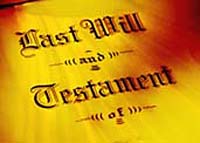 Dad missed the 60-day IRA rollover period and is now being taxed on 100 percent of his life’s savings. Can anything be done?
Dad missed the 60-day IRA rollover period and is now being taxed on 100 percent of his life’s savings. Can anything be done?
Applicable IRS rules and regulations provide that if someone receives a distribution from an IRA, the distribution is then taxed at an individual’s ordinary income rate. A distribution can occur inadvertently in cases where a person wishes to rollover the IRA funds from one investment account into another and the rollover is done incorrectly. This can have disastrous tax results. Again IRS rules and regulations do provide that if there is “reasonable cause,” e.g. mistakes or incorrect actions, missed deadlines can be undone. There are strict timelines again for these procedures, and if all other timelines have passed, the taxpayer can seek relief by means of an IRS Private Letter Ruling (“PLR”). These PLRs are technical and complex to obtain and have significant filing fees and transaction costs but, if someone’s life savings are at issue, it can be worthwhile.
In a recent IRS Private Letter Ruling (PLR)(1), attorney-CPA Tom McCulloch and attorney-CPA Chris Kolenda successfully assisted a taxpayer who had missed a rollover deadline because the institution receiving the funds from the old IRA completed the paperwork incorrectly. Also, that the taxpayer suffered dementia from Alzheimer’s Disease. The process included obtaining sufficient medical evidence about the taxpayers’ medical/cognitive condition from several years past and presenting it cogently to the IRS along with substantiation of the institution’s mistakes. The IRS Private Letter Ruling allowed the taxpayer to successfully roll over the IRA funds from the old account into a new IRA account and avoid being taxed on a significant part of his/her life’s savings.
 For many years, when an individual outgrew a proprietorship, a corporation was the norm. Today, limited liability companies (LLCs) are popular. But despite the inroads of the LLC, corporations persist. But there are key differences between S and C status.
For many years, when an individual outgrew a proprietorship, a corporation was the norm. Today, limited liability companies (LLCs) are popular. But despite the inroads of the LLC, corporations persist. But there are key differences between S and C status. Houston Estate Planning and Elder Law Attorney Blog
Houston Estate Planning and Elder Law Attorney Blog










